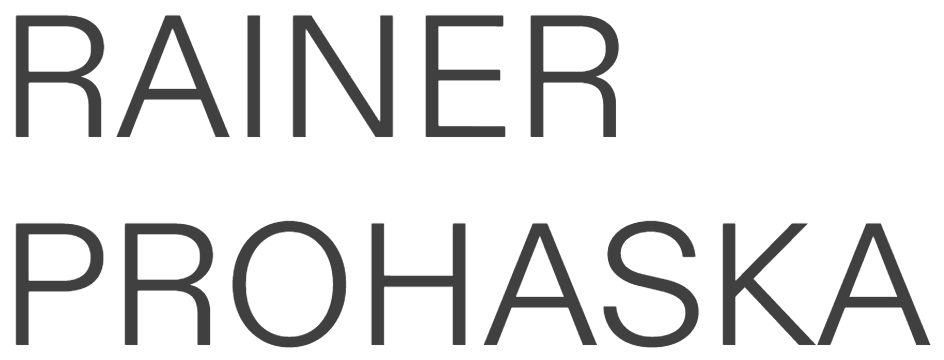MS CARGO
Artist Journey, Performance in Public Space
Location
River Danube - Melk, AUT - Sulina, ROU
Duration
15 April - 8 August 2014
Funded by
The Austrian Federal Chancellery
ARGE Donauländer
Office of the Provincial Government of Lower Austria,
Art & Cultural Affairs
Federal Ministry for Europe, Integration & Foreign Affairs
Sponsored by
OBI Baumarkt Hadikgasse, Vienna Hellsklamm - Outdoor Event Location
Wallner - Wohnen mit Holz |
Anton Witti
Supported by
Herwig Fröch
Roman Gamerith
Dean Mansfeld-Rupnik
Wolfgang Metzker
Jürgen Ullrich
Martin Zöberl
Abt Georg Wilfinger
The MS CARGO was designed and constructed as an
exploration ship by Rainer Prohaska using the tools of TOY KIT ARCHITECTURE.
The trimaran, a traditional barge common along the Austrian Danube, served as the basis of its construction. The MS CARGO’s unique design was developed to enable landing and anchoring at remote stretches of the river bank independent of mooring points. In the summer of 2014, Rainer Prohaska joined by Volker Schmidt explored the Danube from Melk to its estuary in the Black Sea for nine weeks. The focus of the expedition was to survey the Danube culture and to scout out the river as an experimental space for art. Thanks to its lightweight design, the MS CARGO allowed Prohaska and Schmidt to engage the local population independent of the official water transport infrastructure. In doing so, the MS CARGO assumed a dual function as a sailing sculpture and a mobile medium of communication. In addition to theater director and author Volker Schmidt, Rainer Prohaska invited artists, theorists and scientists to join him in his artistic exploration of the Danube from Melk to Sulina.
The expedition resulted not only in the unique process itself and the construction of the MS CARGO but also in photo series by Rainer Prohaska and Lena Appl and the documentary film Boring River by Carola Schmidt. The records, photographs and the film all bear witness to miles of uninhabited banks, marina ruins and ghost ships whose only inhabitants are specters of the past
who wearily try to frighten the few remaining fishers, the remains of past attempts to grow this Danube culture. In a fully mapped world, undertaking such an exploratory expedition along the Danube seems paradox. What is there to discover and document here? And yet the voyage of the MS CARGO shows that the comprehension and visibility of a given spatial context entails more than its mere mapping. Along the great waterways of Europe especially, the history of borders has been written into (natural) space. Separating some cultural spaces and connecting others, the Danube is home to relationships that are fittingly fluid: soft information that only seldom finds its way into the official records of territories.
Guest artists
Volker Schmidt
Bianca Regl
Julia Lautner
Barbara Anna Husar
Carola Schmidt
Georg Russegger
Paul Rameder
Lena Appl
Gernot Schulz
The trimaran, a traditional barge common along the Austrian Danube, served as the basis of its construction. The MS CARGO’s unique design was developed to enable landing and anchoring at remote stretches of the river bank independent of mooring points. In the summer of 2014, Rainer Prohaska joined by Volker Schmidt explored the Danube from Melk to its estuary in the Black Sea for nine weeks. The focus of the expedition was to survey the Danube culture and to scout out the river as an experimental space for art. Thanks to its lightweight design, the MS CARGO allowed Prohaska and Schmidt to engage the local population independent of the official water transport infrastructure. In doing so, the MS CARGO assumed a dual function as a sailing sculpture and a mobile medium of communication. In addition to theater director and author Volker Schmidt, Rainer Prohaska invited artists, theorists and scientists to join him in his artistic exploration of the Danube from Melk to Sulina.
The expedition resulted not only in the unique process itself and the construction of the MS CARGO but also in photo series by Rainer Prohaska and Lena Appl and the documentary film Boring River by Carola Schmidt. The records, photographs and the film all bear witness to miles of uninhabited banks, marina ruins and ghost ships whose only inhabitants are specters of the past
who wearily try to frighten the few remaining fishers, the remains of past attempts to grow this Danube culture. In a fully mapped world, undertaking such an exploratory expedition along the Danube seems paradox. What is there to discover and document here? And yet the voyage of the MS CARGO shows that the comprehension and visibility of a given spatial context entails more than its mere mapping. Along the great waterways of Europe especially, the history of borders has been written into (natural) space. Separating some cultural spaces and connecting others, the Danube is home to relationships that are fittingly fluid: soft information that only seldom finds its way into the official records of territories.
Guest artists
Volker Schmidt
Bianca Regl
Julia Lautner
Barbara Anna Husar
Carola Schmidt
Georg Russegger
Paul Rameder
Lena Appl
Gernot Schulz
